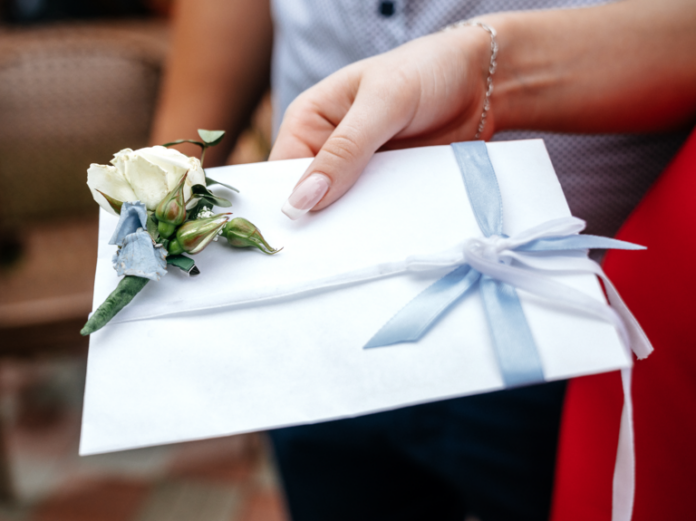When you’re invited to a wedding, figuring out how much to spend on a gift can be a real head-scratcher. There’s no hard and fast rule, but traditional etiquette does offer some guidance that can help you make a decision.
Things like your relationship with the couple, your budget, and cultural norms all come into play. Getting a handle on these factors can make the whole gift-giving process a lot less stressful and uncertain.
If you’re still feeling stuck, you might want to consider using a modern tool like an AI gifting assistant. This can help streamline the decision-making process and ensure you choose a gift that’s both thoughtful and appropriate. It’s a handy solution for anyone who’s unsure about what to give.
Key Takeaways
- Reflect Relationship and Budget: The amount you spend should mirror your closeness to the couple and what you can afford without financial strain.
- Consider Local Costs: Adjust your gift based on the wedding location’s cost of living and the expenses you incur to attend.
- Gift’s Thought Matters: The value of the gift lies more in the thought and relevance to the couple than in its price.
What’s the Rule of Thumb for Spending?

Traditionally, the amount you spend on a wedding gift should reflect your relationship with the couple. Family members typically spend more than friends, with closer relationships justifying higher amounts. However, it’s essential to consider what you’re financially comfortable with.
Spending beyond your means for the sake of tradition is not advisable. For those still uncertain, consulting with other family members or mutual friends about their intended spend can provide a useful benchmark. Ultimately, ensuring your gift aligns with personal financial realities respects both the occasion and your economic well-being.
How Location Influences Your Gift
Weddings in metropolitan areas or high-cost living regions often see guests spending more on gifts. This adjustment is partly due to the higher expenses associated with attending the wedding, such as travel and accommodation, which can influence your overall budget.
Additionally, the general cost of living in the wedding location can be a helpful gauge for setting a gift budget. Understanding these dynamics helps guests make informed decisions that align with local expectations and their financial abilities.
Is There a Minimum Amount I Should Spend?

Even if you’re not close to the couple, it’s generally acceptable to spend at least $50 on a wedding gift. This amount ensures that your gift respects the occasion’s significance without causing financial strain.
Remember, the thought and consideration behind the gift are as important as its monetary value. If you find a gift that holds special meaning or personal significance, this can often be more valuable than a more costly item, reinforcing the personal connection rather than the price.
Adjusting for Group Gifts
Joining forces with others to purchase a more significant gift can be a practical approach, especially among friends or colleagues. This method allows guests to give memorable and perhaps more expensive gifts without bearing the full cost individually.
It’s a way to show generosity without undue financial burden. Group gifts can also allow for more lavish or practical gifts that the couple may truly need but would not expect any single guest to afford, such as appliances or furniture.
Should My Gift Reflect the Cost of My Plate?

There is a common misconception that your gift should match the cost per plate at the wedding. This idea isn’t only outdated but also impractical, as the true cost per guest can vary widely and isn’t typically known by the attendees. Instead, focus on what you are comfortable spending.
Consider the gift as a celebration of the couple’s new journey rather than a transactional response to their hospitality. This perspective ensures that the essence of your gift is tied to your wishes for the couple’s happiness, rather than a reflection of the wedding’s expense.
When to Opt for Cash
In many cultures, giving cash as a wedding gift is standard and even expected. This can be particularly useful for couples who already live together and may not need traditional household items. Cash gifts provide flexibility for the newlyweds to use the funds as they see fit, whether for their honeymoon, savings, or other household needs.
When deciding how much cash to give, consider similar factors as you would for a physical gift: your relationship to the couple, your own financial situation, and the customary amounts given within your community or culture. Typically, a minimum of $50 is appropriate, but many guests choose to give more, often between $100 to $150, to ensure their gift feels generous and supportive.
Can My Presence Be My Present?

If traveling to a destination wedding with significant associated costs, some may wonder if their presence alone suffices. While this is a personal decision, a small gift or a heartfelt card can add a touch of thoughtfulness, acknowledging the couple’s special day beyond just showing up.
FAQ
What if I can’t afford a big gift?
It’s perfectly okay. Opt for something meaningful within your budget or consider a heartfelt handmade gift.
Is cash an appropriate wedding gift?
Yes, cash gifts are often appreciated as they give the couple the flexibility to use them as they see fit, whether for their honeymoon or home needs.
How soon should I send the wedding gift?
Try to send the gift before the wedding or within three months afterward to stay within etiquette guidelines.
Conclusion
Deciding how much to spend on a wedding gift involves balancing tradition with personal circumstances. It’s important to consider your relationship with the couple, your budget, and any cultural expectations. Remember, the sincerity of your gift matters more than its price tag.
Opting for group gifts or cash can ease financial pressures while still providing meaningful contributions. Ultimately, whatever you choose should be something that you are comfortable with and reflects your good wishes for the couple’s future together. Your thoughtful participation in their joyous occasion is, after all, the real gift.







